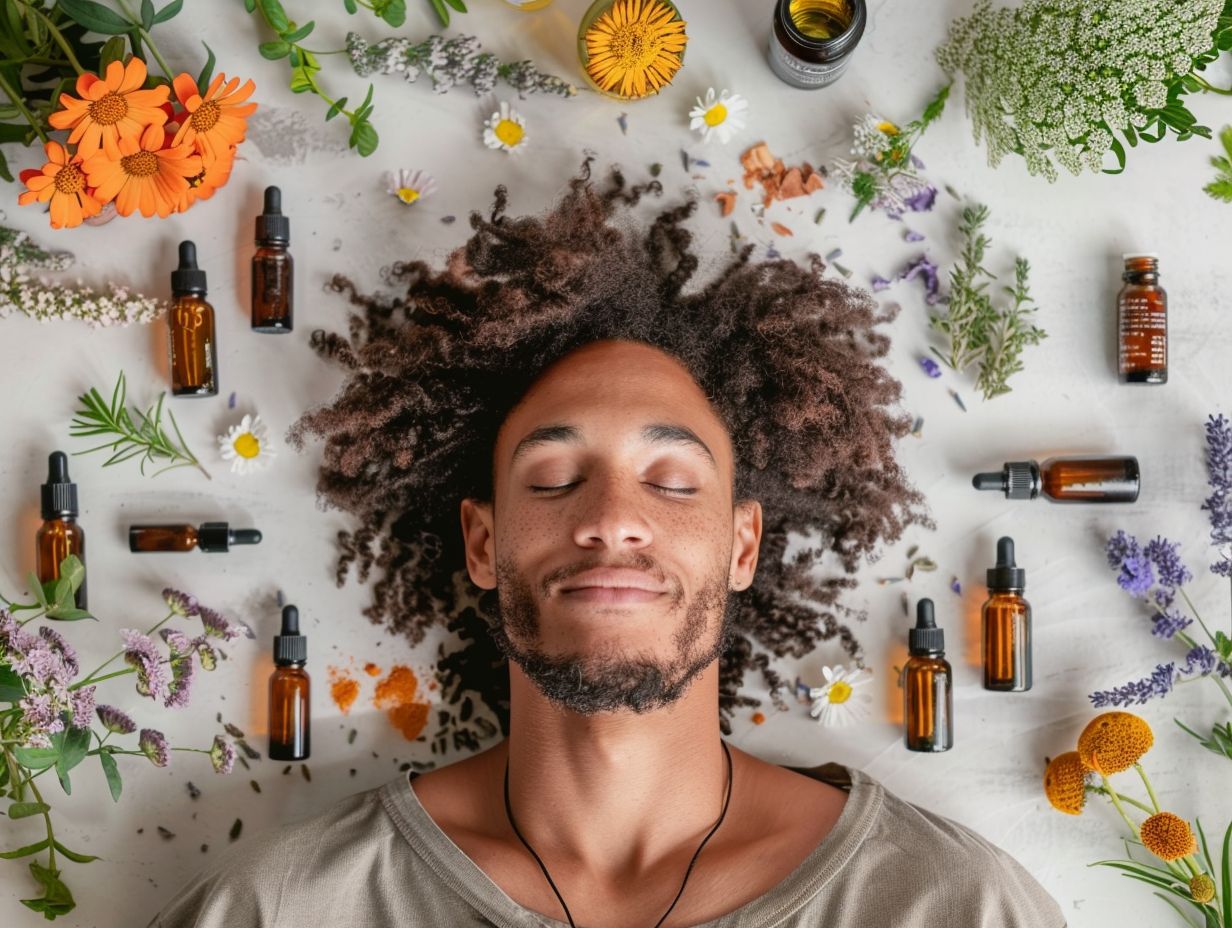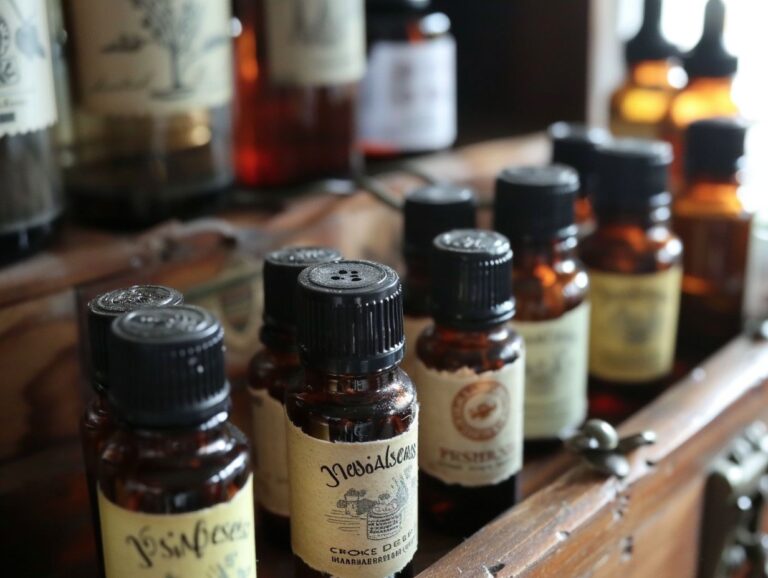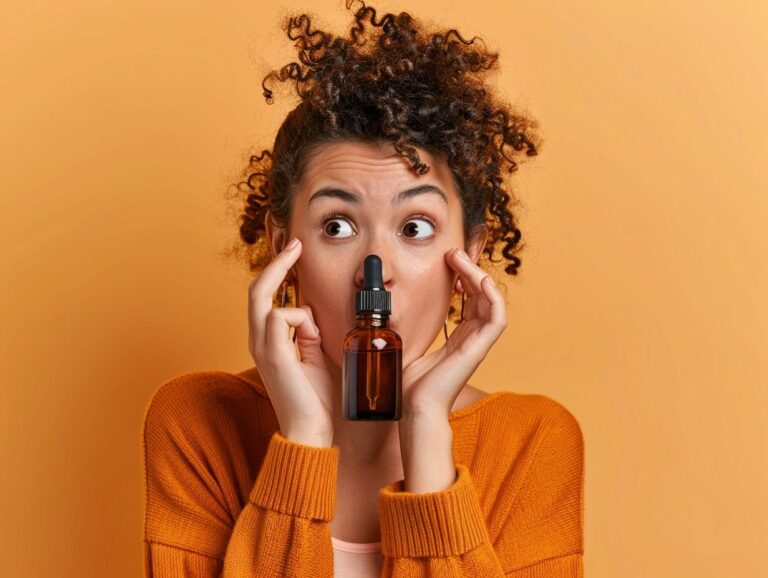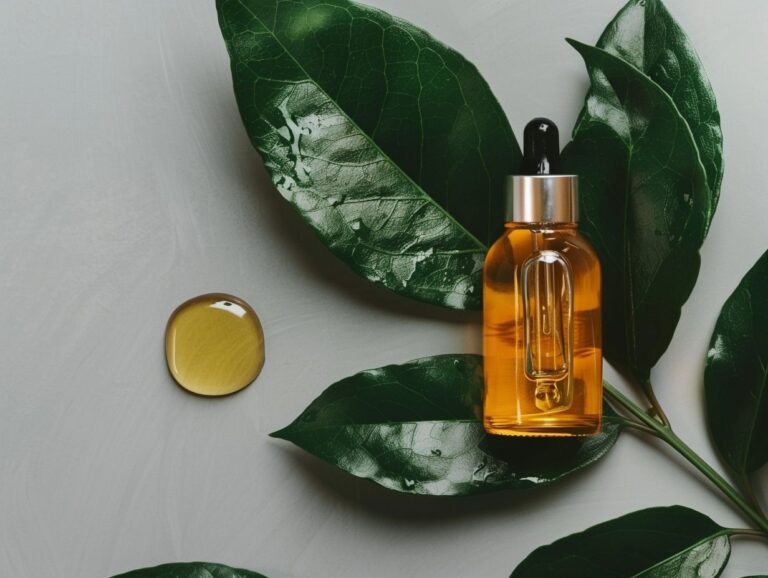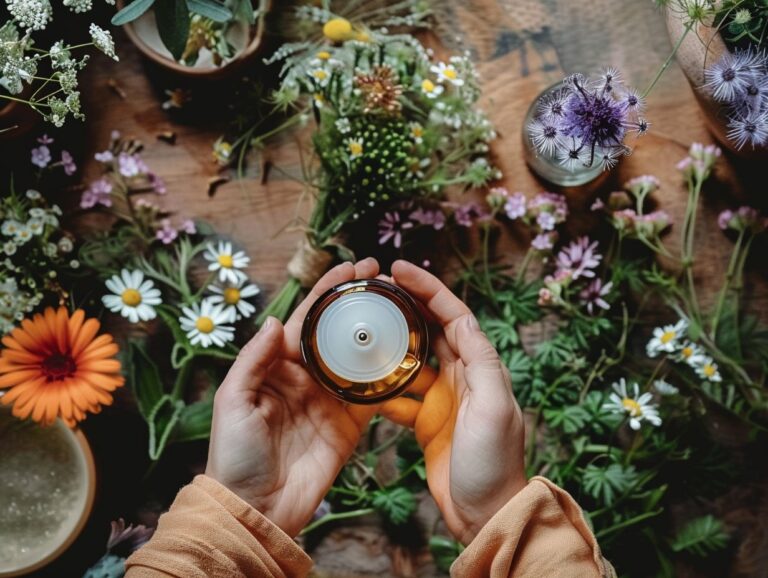How Does Aromatherapy Help With Mental Health
Aromatherapy is a holistic healing treatment that uses natural plant extracts, known as essential oils, to promote physical and mental well-being.
We will explore the benefits of aromatherapy for mental health, including its ability to reduce stress and anxiety, improve sleep quality, boost mood, relieve headaches, and enhance cognitive function.
We will also discuss different aromatherapy techniques, potential risks and side effects, and how it can be used in conjunction with traditional mental health treatments.
Let’s dive in and discover the power of aromatherapy for mental wellness.
Key Takeaways:
What Is Aromatherapy?
Aromatherapy is a holistic treatment that utilizes essential oils extracted from plants to promote mental and physical well-being. It is a therapeutic approach that focuses on the benefits of scents derived from natural sources.
Essential oils have been used for centuries in various cultures for their healing properties. The origins of aromatherapy can be traced back to ancient civilizations such as Egypt, Greece, and China, where aromatic plant oils were valued for their medicinal and spiritual benefits. The basic principle behind aromatherapy is the belief that inhaling the aroma of these oils can stimulate brain function, trigger emotions, and promote relaxation. Common essential oils used in aromatherapy include lavender, peppermint, tea tree, and eucalyptus, each with its own unique therapeutic effects.
How Does Aromatherapy Work?
Aromatherapy works by stimulating the limbic system in the brain, which plays a key role in regulating emotions and behaviors. Through the inhalation or application of essential oils, specific neurotransmitters are modulated, influencing mood and mental states.
Essential oils contain volatile compounds that trigger olfactory receptors, sending signals to the limbic system responsible for processing emotions and memories. This direct pathway allows for rapid responses in mood and stress levels, offering a natural remedy for anxiety, depression, and relaxation.
What Are Essential Oils?
Essential oils are concentrated extracts derived from plants, known for their therapeutic benefits in addressing various physical and emotional issues.
These aromatic oils have been used for centuries in various cultures and are obtained through processes like distillation or cold pressing. The volatile compounds found in essential oils offer a range of therapeutic benefits, from soothing headaches to improving sleep quality. Studies have demonstrated that certain oils, like lavender, possess calming properties that can help alleviate stress and enhance mental well-being.
What Are The Benefits Of Aromatherapy For Mental Health?
Aromatherapy offers a range of benefits for mental health, including alleviating symptoms of anxiety, depression, and mood disorders. The therapeutic scents of essential oils have been shown to positively impact emotional well-being.
Research has indicated that certain essential oils, such as lavender and chamomile, can help in reducing stress levels and promoting relaxation. Studies have suggested that inhaling these scents can stimulate the brain’s limbic system, which plays a key role in emotions and memory. This stimulation can lead to the release of feel-good neurotransmitters, such as serotonin and dopamine, helping to improve mood and alleviate symptoms of anxiety and depression. Aromatherapy can be a complementary treatment alongside traditional psychiatric interventions, offering a holistic approach to mental health care.
Reduces Stress and Anxiety
Aromatherapy, particularly through the use of essential oils like lavender, bergamot, and chamomile, has been found to effectively reduce stress and anxiety levels in individuals. These oils have calming properties that aid in relaxation.
These essential oils can be incorporated into aromatherapy practices through methods such as diffusing them in a room, adding a few drops to a relaxing bath, or using them in massage oils.
- Lavender oil is known for its soothing scent that can promote a sense of calm and relaxation. It is often used to reduce insomnia and improve sleep quality.
- Bergamot oil has a citrusy aroma that can uplift the mood and alleviate stress. It is commonly used to reduce anxiety and depression.
- Chamomile oil is gentle and soothing, making it ideal for easing tension and promoting emotional well-being. It is often used to alleviate anxiety and promote relaxation.
Incorporating these essential oils into your daily routine can help create a peaceful and calming environment, supporting overall emotional well-being.
Improves Sleep Quality
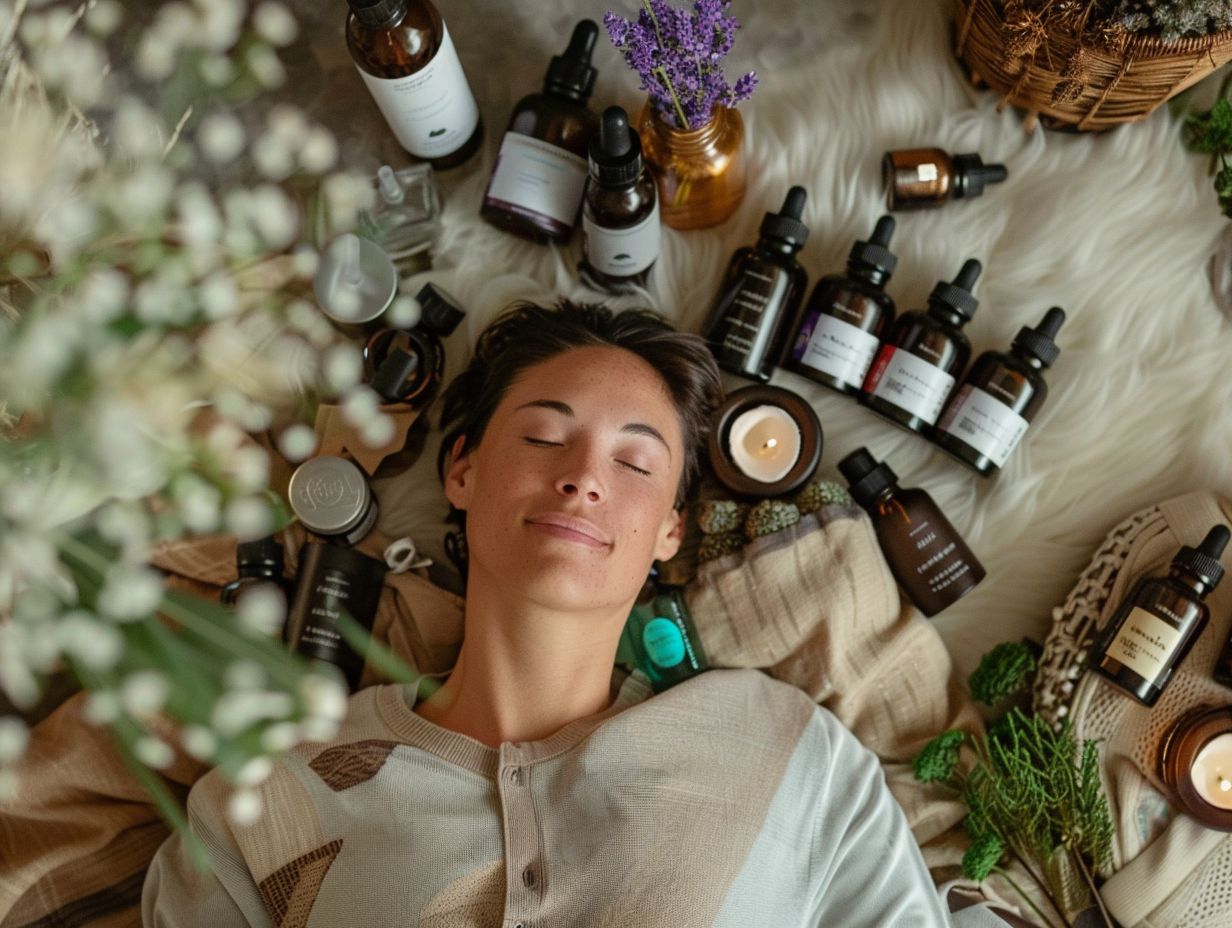
Lavender oil is a popular choice in aromatherapy for improving sleep quality and addressing sleep disturbances, including those experienced by individuals with PTSD. The soothing aroma of lavender promotes relaxation and enhances restful sleep.
Studies have shown that inhaling lavender oil before bedtime can lead to improved sleep patterns, reduced anxiety levels, and increased overall well-being. This natural remedy is believed to have calming effects on the body and mind, which can be particularly beneficial for those struggling with PTSD-related sleep disruptions.
Boosts Mood
Essential oils such as frankincense and ylang-ylang are known for their mood-boosting effects in aromatherapy. They help in alleviating symptoms of mood disorders and promoting emotional balance through their fragrant properties.
These essential oils have been used for centuries to improve mental well-being and reduce stress levels. Frankincense, with its earthy and grounding scent, is often associated with calming anxiety and enhancing spiritual awareness.
- Ylang-ylang, on the other hand, is known for its floral and uplifting aroma, which can uplift the mood and reduce symptoms of depression.
- In aromatherapy practices, these oils are often diffused or applied topically to harness their therapeutic benefits.
Relieves Headaches and Migraines
Peppermint oil is a popular choice in aromatherapy for relieving headaches and migraines due to its analgesic properties. The cooling sensation of peppermint oil can help alleviate pain and discomfort associated with headaches.
When using peppermint oil for headache relief, it’s essential to dilute the oil with a carrier oil such as coconut or jojoba oil to prevent skin irritation. A recommended ratio is one to two drops of peppermint oil per teaspoon of carrier oil. To apply, gently massage the diluted oil mixture onto the temples, forehead, and neck area. The aroma of peppermint oil can also help relax the mind and reduce stress, which can further aid in relieving headache symptoms.
Enhances Cognitive Function
Aromatherapy incorporating essential oils like rosemary and lemon has been associated with enhancing cognitive function and mental clarity. These stimulating scents can improve focus, memory, and overall cognitive performance.
Rosemary oil, in particular, has been shown to boost memory retention and aid in concentration, making it a valuable asset for students and professionals alike. On the other hand, the invigorating aroma of lemon oil is known to uplift mood and increase alertness, contributing to improved cognitive abilities. When used in combination, these oils create a synergistic effect that not only sharpens mental focus but also promotes a sense of mental well-being.
What Are The Different Aromatherapy Techniques?
Aromatherapy techniques encompass various methods of application that enable the delivery of essential oils for therapeutic purposes. These techniques include inhalation, topical application, aromatherapy massage, and the use of aromatherapy diffusers.
Topical application involves directly applying essential oils to the skin, allowing for quick absorption and localized benefits.
Aromatherapy massage combines the benefits of essential oils with the therapeutic effects of massage, promoting relaxation and reducing stress.
Inhalation, whether through steam, spray, or inhaler, allows the oils to enter the body through the respiratory system, impacting both the mind and body. To learn more about aromatherapy for emotions, click here.
Aromatherapy diffusers disperse essential oils into the air, creating a pleasant atmosphere and providing continuous aromatherapy benefits throughout the day.
Inhalation
Inhalation therapy is a common aromatherapy technique that involves breathing in the aromatic vapors of essential oils. Through inhalation, the active compounds in the oils interact with the body’s physiological systems, producing clinical effects.
When inhaled, these compounds travel through the nasal passage and reach the olfactory nerves, which are directly connected to the limbic system, the emotional center of the brain. This direct pathway allows for a rapid response, influencing emotions, mood, and overall mental well-being.
The sense of smell is powerful, with certain scents triggering specific reactions in the brain. For instance, lavender is often used for its calming effects, while citrus scents can boost energy and uplift the mood.
Topical Application
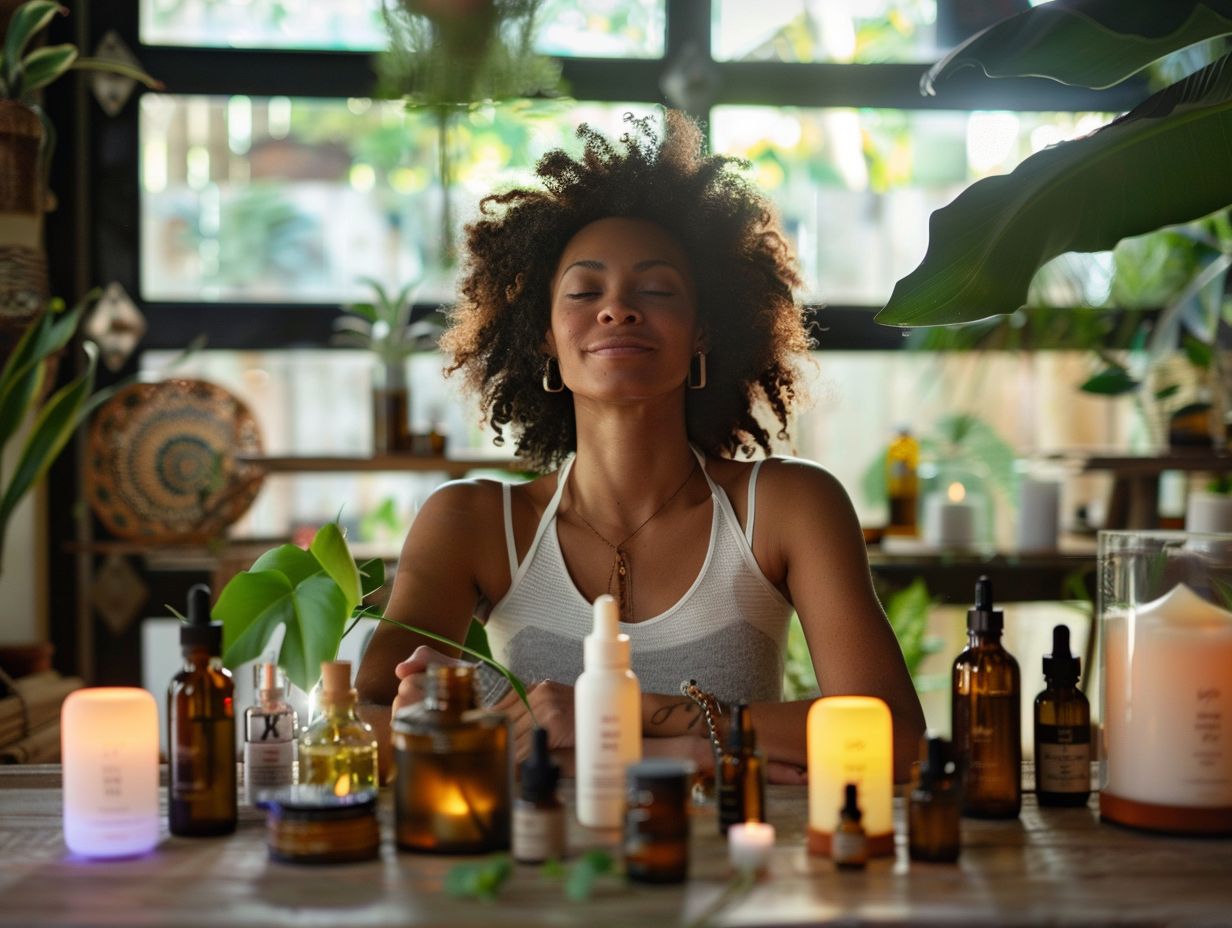
Topical application is a method of administering essential oils by applying them directly to the skin. When using essential oils topically, it is essential to observe safety precautions to prevent skin irritation or allergic reactions.
One of the primary safety measures to consider is proper dilution of essential oils. Undiluted essential oils can be too potent and may cause adverse reactions on the skin. It is recommended to mix essential oils with a carrier oil before applying them to the skin. Common carrier oils include coconut oil, almond oil, or jojoba oil.
Understanding the sensitivity of different areas of the skin is crucial. Some parts of the body, like the face or genitals, are more sensitive and may require further dilution or avoidance of certain essential oils.
Before applying any essential oil topically, performing a patch test is highly recommended. This involves applying a diluted solution of the essential oil on a small area of skin and waiting to observe any adverse reactions before widespread application.
Aromatherapy Massage
Aromatherapy massage combines the benefits of traditional massage therapy with the healing properties of essential oils. The integration of aromatherapy into massage sessions enhances relaxation, relieves muscle tension, and promotes overall well-being.
This therapeutic practice not only targets physical ailments but also addresses emotional and mental well-being, offering a complete sensory experience.
-
When essential oils are diffused or applied topically during a massage, they work in harmony with the body to calm the nervous system, uplift the mood, and improve circulation.
-
By stimulating the olfactory system, aromatherapy triggers the release of neurotransmitters in the brain, such as serotonin and endorphins, which contribute to feelings of happiness and relaxation.
Aromatherapy Diffusers
Aromatherapy diffusers are devices that disperse essential oil vapors into the air, allowing for easy inhalation and diffusion of therapeutic scents. These diffusers offer a convenient way to incorporate aromatherapy into daily routines and complement conventional treatments.
By breaking down essential oils into small particles and dispersing them, diffusers effectively release the therapeutic properties of the oils. Whether you prefer a gentle mist or a more potent aroma, diffusers can be adjusted to meet your preferences. The calming scents emitted by the diffusers can help reduce stress levels, promote relaxation, and improve sleep quality. Using diffusers can also aid in supporting respiratory health and enhancing mental clarity, making them versatile additions to your wellness routine.
Are There Any Risks or Side Effects of Aromatherapy?
While aromatherapy is generally considered safe, there are potential risks and side effects to be aware of. Skin irritation, allergic reactions, and interactions with medications are some of the concerns associated with the improper use of essential oils.
It is essential to follow certain safety considerations when using essential oils to ensure a positive experience with aromatherapy. One crucial factor is proper dilution to prevent skin irritation. Diluting essential oils in a carrier oil before applying them to the skin helps reduce the risk of adverse reactions. Understanding the specific properties of each essential oil and their potential interactions is vital to avoid any complications. Always perform a patch test before regular use to check for any sensitivity. Educating oneself on the proper dosage and application methods can help maximize the benefits while minimizing the risks associated with aromatherapy.
Skin Irritation
Skin irritation is a common side effect of aromatherapy, especially when essential oils are applied directly to the skin without proper dilution. It is essential to follow recommended methods of application to prevent skin sensitivity and irritation.
“
One of the primary causes of skin irritation in aromatherapy is the potent nature of essential oils. These concentrated oils can be too harsh for direct application on the skin, leading to adverse reactions. The lack of proper dilution before application can cause burns, rashes, or allergic reactions.
Proper application techniques such as diluting essential oils with carrier oils like coconut or jojoba oil, or adding them to lotion or bath water, can help minimize the risk of skin irritation.
Allergic Reactions
Allergic reactions to essential oils can occur in some individuals, leading to skin rashes, respiratory issues, or other allergic symptoms. It is crucial to perform a patch test and observe safety precautions to identify and avoid potential allergens.
Performing a patch test is a simple yet effective way to identify sensitivity or allergic reactions to essential oils.
- Before using a new essential oil, dilute a small amount and apply it to a small area of skin, such as the inner forearm.
- Watch for any signs of irritation, redness, itching, or swelling within 24 hours.
- If any adverse reactions occur, discontinue use immediately.
Recognizing symptoms of allergic reactions is essential. These may range from mild skin irritation and itching to more severe reactions like difficulty breathing or swelling of the face and throat. If you experience any of these symptoms after using an essential oil, seek medical attention promptly.
Interaction with Medications
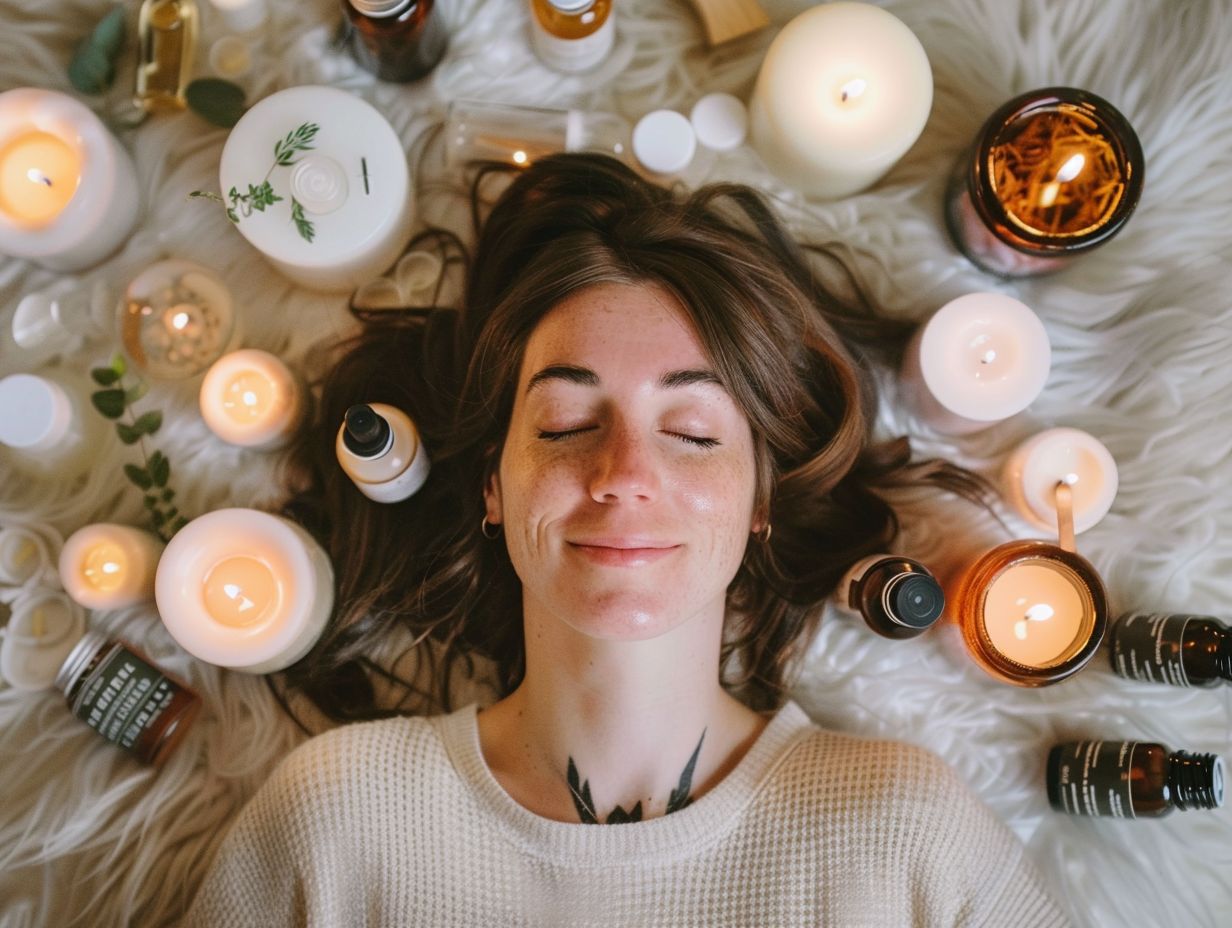
Certain essential oils used in aromatherapy may interact with medications, affecting their efficacy or causing unexpected side effects. It is important to consult with healthcare providers before incorporating aromatherapy into a treatment regimen, especially for individuals on medication.
When utilizing essential oils alongside medications, it is crucial to understand how these interactions can impact your health. Some essential oils can alter the way certain medications are metabolized in the body, potentially leading to either reduced effectiveness or increased side effects. To ensure safe integration, discussing your aromatherapy plans with a healthcare professional is recommended.
It’s advisable to research and select essential oils that are known to have minimal interactions with common medications. Maintaining communication with your healthcare team about your aromatherapy practices can help prevent any adverse effects and ensure optimal therapeutic outcomes.
How Can Aromatherapy Be Used in Conjunction with Traditional Mental Health Treatments?
Aromatherapy can be effectively integrated with traditional mental health treatments to enhance therapeutic outcomes and promote holistic well-being. By combining aromatherapy with conventional approaches, individuals can benefit from a comprehensive treatment plan that addresses both emotional and physical aspects of mental health.
The use of essential oils in aromatherapy has been found to have calming effects on the mind and body, helping to reduce symptoms of anxiety and stress. For example, lavender oil is known for its relaxing properties, which can aid in promoting better sleep and reducing feelings of unease. When used in conjunction with cognitive-behavioral therapy or mindfulness techniques, aromatherapy can amplify the efficacy of these interventions, creating a more nurturing and healing environment for individuals seeking mental health support.

